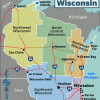Sandra L. Thompson is director of the Federal Housing Finance Agency (FHFA). This article is excerpted and edited from written testimony delivered before a recent hearing conducted by the U.S. Senate Committee on Banking, Housing and Urban Affairs.
In August 2022, FHFA announced that it would conduct a comprehensive review of the FHLBank System – the first such review in decades. The objective of this review was to ensure the FHLBanks remain well positioned to meet the needs of their members and the communities they serve as the System approaches its centennial.
Support for members’ housing activities has been the cornerstone of the FHLBank System since its creation and remains critically important for community-oriented organizations, which include community banks, credit unions, and Community Development Financial Institutions (CDFIs). These organizations have a relationship-focused approach that enables them to reach individuals with limited housing options in a safe and sound manner. Community banks, credit unions, and CDFIs also serve an important role in supporting community development initiatives, including in low- and moderate-income neighborhoods.
Following extensive public and stakeholder engagement, FHFA published its FHLBank System at 100: Focusing on the Future report (Report) in November 2023. The recommendations focus on ensuring the FHLBanks can effectively fulfill the two core objectives of their mission: providing stable and reliable liquidity to their members and supporting housing and community development. These objectives are not mutually exclusive but instead are related and overlapping.
As FHFA continues to move forward with implementing the recommendations in the Report, the Agency is encouraged by recent actions taken by the FHLBanks resulting from the review. Examples include increased voluntary allocations to their statutorily required Affordable Housing Program (AHP) contributions, improved engagement with non-depository CDFIs, and the development of voluntary programs to better support tribal communities.
FHFA will facilitate an open and transparent process as it implements many of the recommendations in the Report through guidance and rulemaking. FHFA has already issued guidance for the FHLBanks to execute pilot and voluntary programs and completed a regulatory interpretation indicating how cooperatives, state-charted credit unions in Puerto Rico, can pursue membership in the FHLBank System.
Forthcoming actions and public engagement in 2024 include clarifying the FHLBank System mission, aligning eligibility requirements for different types of FHLBank members and ensuring they have an ongoing commitment to mortgage finance, and streamlining requirements related to the Affordable Housing Program.
Additionally, FHFA remains ready and willing to engage with Congressional stakeholders regarding any potential changes to statute based on the Report’s recommendations, including an increase to the minimum AHP statutory contribution and an expansion of the institutions eligible to pledge community financial institution (CFI) collateral.
Support for Community Development Financial Institutions
The Report recommends that Congress amend the Federal Home Loan Bank Act (Bank Act) to expand the range of member institutions eligible to pledge CFI collateral to include all CDFI and credit union members. This will allow non-depository CDFIs – which are mission-focused institutions – and credit union members with total assets below the statutory cap to pledge a wider range of eligible collateral to secure FHLBank advances, which will further support the housing and community development component of the FHLBanks’ mission.
This recommendation complements ongoing work that FHFA is undertaking in support of CDFIs. In the coming months, FHFA also plans to issue a public request for information on affordable housing and community development collateral. Responses will inform preparation of guidance to the FHLBanks on developing mission-oriented collateral programs that encourage the use of collateral with a strong connection to the housing and community development mission of the FHLBank System, as well as guidance on evaluating CDFI credit and collateral risk.
On June 20, 2024, FHFA will host a public FHLBank and CDFI Symposium to provide an opportunity for CDFIs to learn more about the FHLBank System as well as for FHLBank leadership to gain a better understanding of CDFIs. Panelists from the FHLBanks and CDFIs will share perspectives on FHLBank membership requirements and benefits, the perceived and actual risks associated with CDFI business models, and innovative programs and partnerships at the FHLBanks. FHFA expects participants will gain a better understanding of how FHLBanks and CDFIs can work together to address housing and community development needs in the communities they serve.
Support for the Affordable Housing Program
The FHLBanks are government-sponsored enterprises with a public purpose. The FHLBanks receive benefits to fulfill this public purpose, including exemption from paying most federal, state, and local taxes, as well as the ability to issue debt in the capital markets at rates slightly higher than those on comparable Treasury instruments. Accordingly, FHFA is also recommending that Congress amend the Bank Act to increase the statutorily required minimum funding contribution for the AHP from the current 10% to at least 20% of the FHLBank’s net income from the previous year.
An increase in contributions to the AHP would be one of the most significant means of directly increasing the FHLBanks’ support for affordable housing. Each FHLBank is required by the Bank Act to contribute annually 10% of its net income from the previous year to its AHP. These programs have had a positive impact in promoting the mission of the FHLBank System and addressing affordable housing challenges in communities across the country. However, the resources available through these programs remain limited relative to the broader housing needs in the market.
The FHLBanks have demonstrated the financial capacity to make a larger AHP funding contribution without adversely affecting their safety and soundness. For example, for the past 12 years, each FHLBank has voluntarily set aside 20% of its net income to a restricted retained earnings account which is considered part of the full capital position of the FHLBanks and contributes to their capacity to absorb losses.















